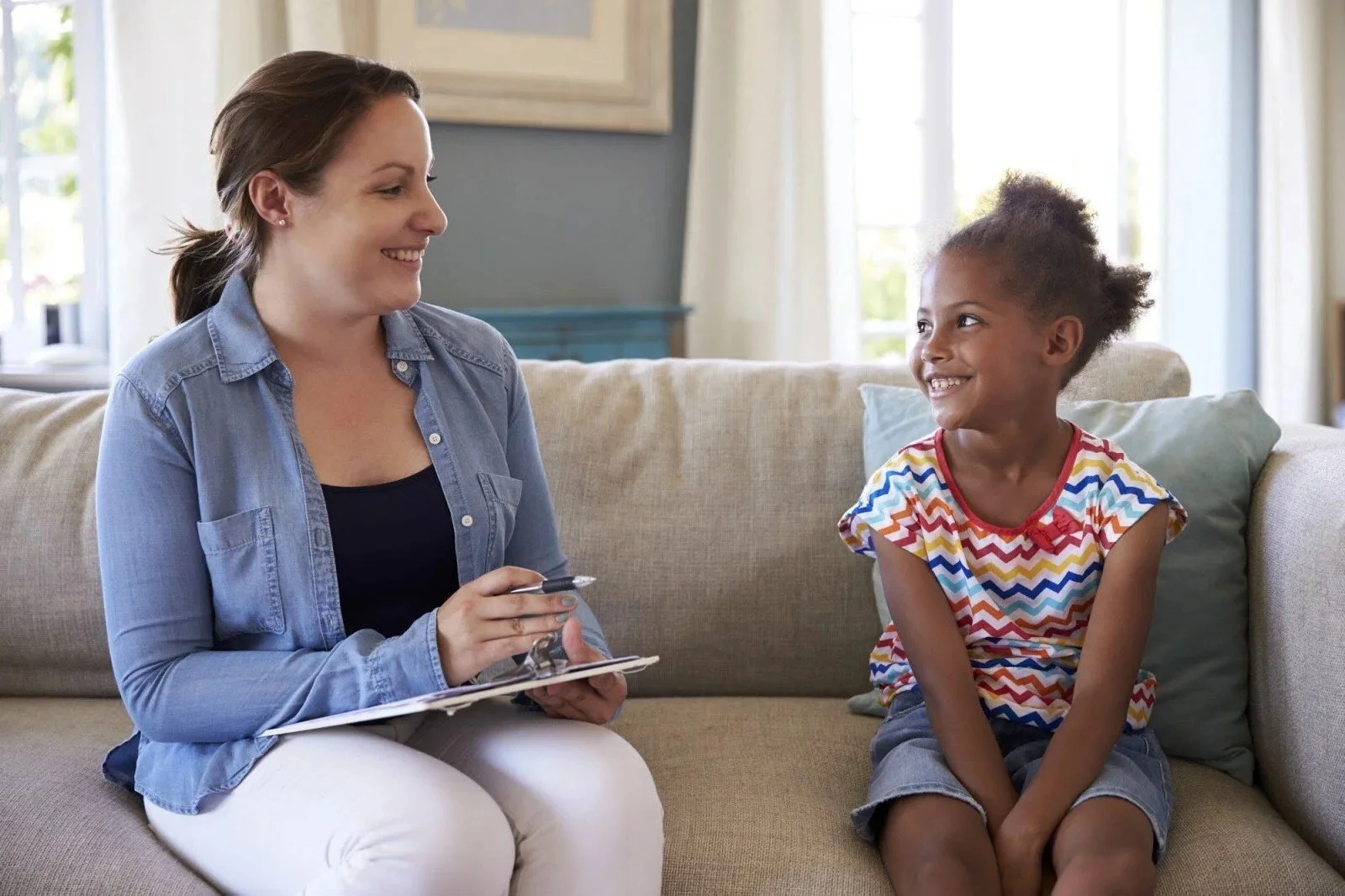Do I Have Childhood Trauma? 8 Signs You Might Not Have Noticed
Childhood trauma doesn’t always look like what we imagine. It’s not limited to the obvious markers of abuse or violence. Sometimes, trauma is subtly hidden in loneliness, emotional neglect, or being asked to grow up too fast. You might ask yourself, “How do I tell if I have childhood trauma?” The answer is complex because trauma can take many forms and often stays buried beneath the surface of daily life, only revealing itself in anxiety, strained relationships, or low self-worth.
At Wellman Psychology, we specialize in Trauma Therapy Chicago and helping individuals identify and heal from early-life wounds, even those they didn’t realize were affecting them. Understanding how trauma works and recognizing the signs is a powerful first step toward reclaiming your mental and emotional well-being.
What Is Childhood Trauma?
Trauma is not defined solely by the event, but by its lasting emotional impact. A distressing experience in childhood becomes traumatic when it overwhelms a child's ability to cope or process emotions safely. One child might recover quickly from a loss, while another could be deeply wounded by the same experience, especially if they lack a supportive environment.
Some common causes of childhood trauma include:
Physical or sexual abuse: Direct harm to a child's body or sense of safety.
Emotional neglect: When parents are physically present but emotionally unavailable, ignoring or dismissing a child’s emotional needs.
Loss of a parent: Whether through death, divorce, or abandonment, the loss of a primary caregiver can leave a deep imprint.
Bullying: Humiliation, exclusion, or persistent teasing by peers or adults.
Violence in the home, school, or community: Witnessing or being near acts of aggression or hostility.
Serious illness or hospitalization: Long periods away from peers or caregivers, or enduring painful treatments, can foster isolation and fear.
Learning disabilities: Struggling in school without support can deeply damage a child’s self-concept.
Transgenerational trauma: If your caregivers experienced trauma themselves, it may unconsciously shape their parenting and, in turn, your development.
Even if your childhood doesn't include what society typically labels as "trauma," you may still be carrying the emotional weight of early experiences that hurt.
How to Tell If You Have Childhood Trauma?
Recognizing childhood trauma can be difficult, especially when it doesn’t involve a dramatic or easily remembered event. It may show up in adulthood as:
A tendency to withdraw from others
Difficulty trusting even those close to you
Unexplained anxiety, anger, or sadness
Persistent low self-worth
Relational patterns that repeat old hurts
If these symptoms persist without an identifiable cause, they may be rooted in unresolved trauma.
Emotional and Psychological Impacts
Trauma often takes up residence in the mind long after the original event is over. One of the most well-known responses is post-traumatic stress disorder (PTSD), but many people who experience trauma do not meet full diagnostic criteria. Still, the effects are very real.
Common psychological symptoms include:
Flashbacks or nightmares related to past events
Avoidance behaviors, such as staying away from situations that might trigger memories
Generalized anxiety or depression that persists
Outbursts of anger or irritability
Self-destructive behaviors, including substance use or risky choices
Withdrawing from relationships or opportunities
Persistent fear of being judged or rejected
Even without a PTSD diagnosis, these patterns may signal your brain is still trying to protect itself from a long-past threat.
Effects on Relationships and Attachment
Attachment is formed in childhood and when our earliest relationships were unreliable, unsafe, or emotionally distant, it can cause ripple effects across a lifetime.
Unresolved trauma can result in:
Avoidant attachment: You keep people at arm’s length, fearing vulnerability.
Ambivalent attachment: You become clingy or anxious in relationships, constantly worried about being abandoned.
Disorganized attachment: You crave connection but also fear it, leading to push-pull dynamics.
You might find yourself drawn to people who are emotionally unavailable or even abusive, repeating patterns learned in childhood. Alternatively, you might struggle to maintain close connections at all, fearing intimacy or betrayal.
Educational and Social Impacts
Children who struggle academically, especially those with undiagnosed or unsupported learning disabilitie,s often internalize a sense of failure. Being told you're "not trying hard enough" or "not as smart" can lead to lifelong shame.
Common lingering effects:
Perfectionism: Constantly striving to prove worth through achievement.
Impostor syndrome: Feeling like you don’t belong, even when succeeding.
Social anxiety: Difficulty navigating friendships due to past isolation or bullying.
Fear of failure: Avoiding new challenges to protect a fragile sense of self.
Even adults with impressive careers may feel like they’re never good enough because of these early beliefs.
Physical Health Consequences
The body keeps the score. Childhood trauma doesn’t just affect your mind, it also impacts your physical health through prolonged stress, poor coping mechanisms, or neurobiological changes.
Increased risks include:
Diabetes
Coronary artery disease
Asthma and respiratory issues
Stroke
Chronic pain and fatigue
Early trauma may also lead to behaviors like smoking, overeating, or substance use, which further contribute to chronic illness.
Can Childhood Trauma Last a Lifetime?
Yes, and often, it does. Especially when it goes unacknowledged or untreated. Unresolved trauma lives on in how we think, feel, and interact with others. It shows up in our triggers, fears, and stress responses. It can quietly shape every aspect of our adult lives, from how we parent to how we handle conflict, success, or love.
Transgenerational trauma can also perpetuate these patterns. If your parents were traumatized and never healed, their pain may have unconsciously been passed on to you in the form of emotional distance, anxiety, or control.
Healing from Childhood Trauma
The good news is that healing is absolutely possible. At Wellman Psychology, we understand that trauma is complex and deeply personal, and so is recovery. No two healing journeys are the same, but they often begin with finding the right therapeutic support.
An effective therapist will:
Create a safe space for trust to develop over time
Encourage open expression of fear, anger, and grief
Understand the unique imprint of trauma on your life
Use trauma-informed, psychodynamic, or psychoanalytic approaches
Help reconnect you with your younger self, the one who still carries the hurt
You don’t have to revisit the past all at once. Healing happens in layers, and it starts with being seen, heard, and believed.
Ready to Take the First Step?
At Wellman Psychology, we are committed to helping you uncover and heal the pain of your past. Whether you’ve lived with unexplained anxiety, broken relationships, or a sense of never being “enough,” we are here to guide you toward clarity and peace.
We offer compassionate, individualized Trauma Therapy Chicago with experienced clinicians who truly understand the lasting effects of childhood trauma.
You deserve to feel safe, valued, and whole no matter what your past held.
Your healing journey starts with a single step. Let us walk with you. Contact us today!
Feel free to check out our social media links below:
Find out more articles that can help you below:









